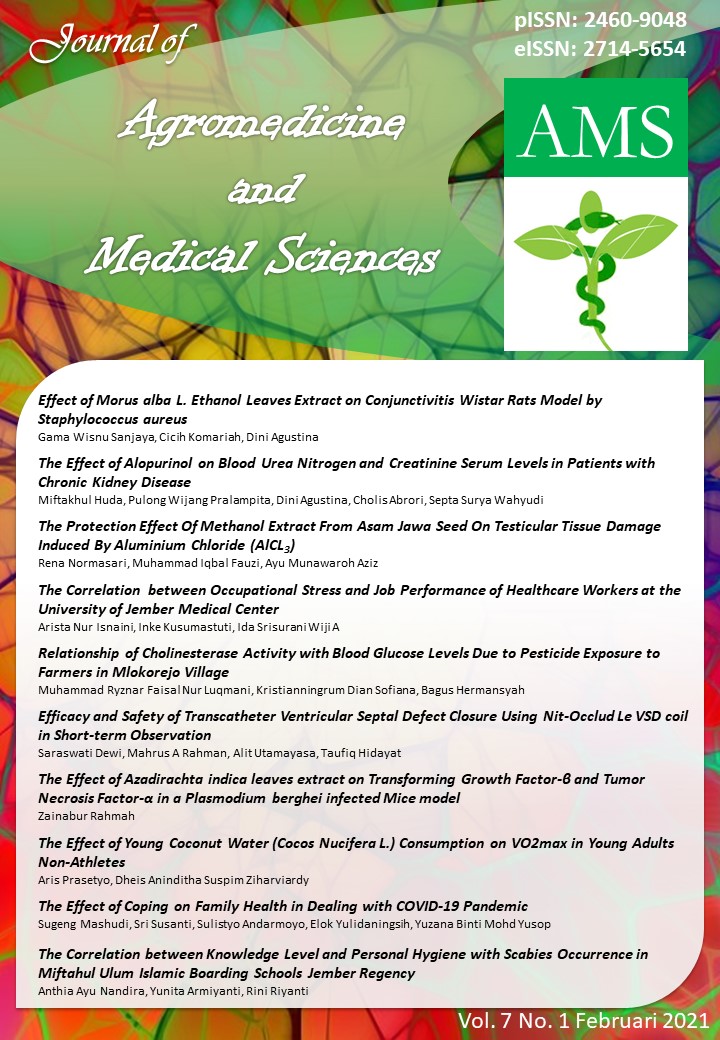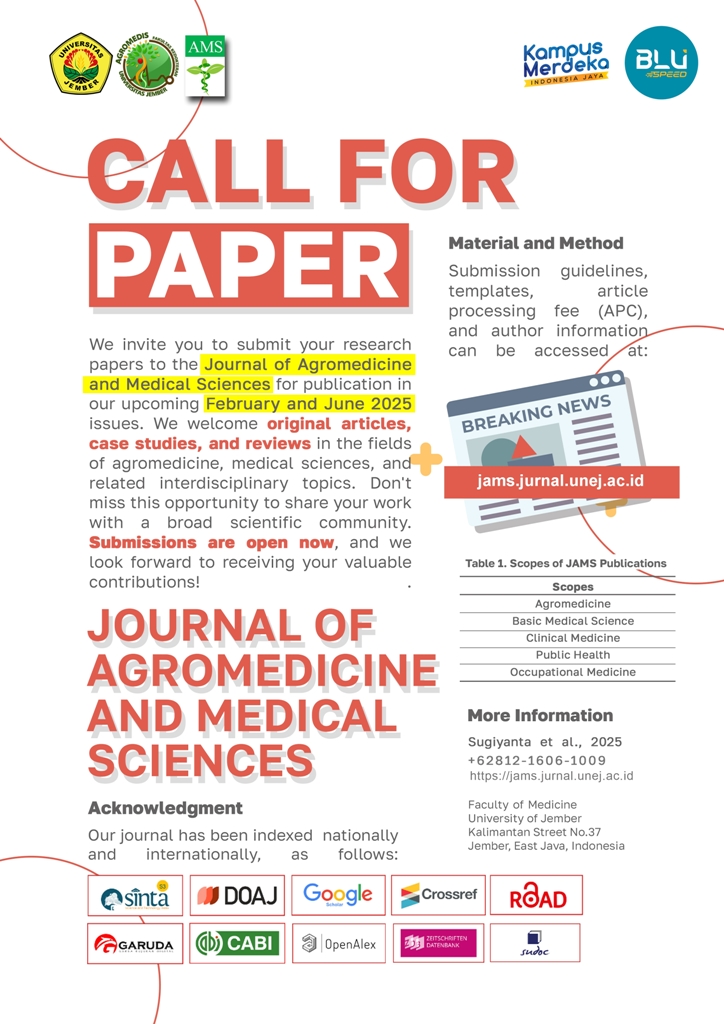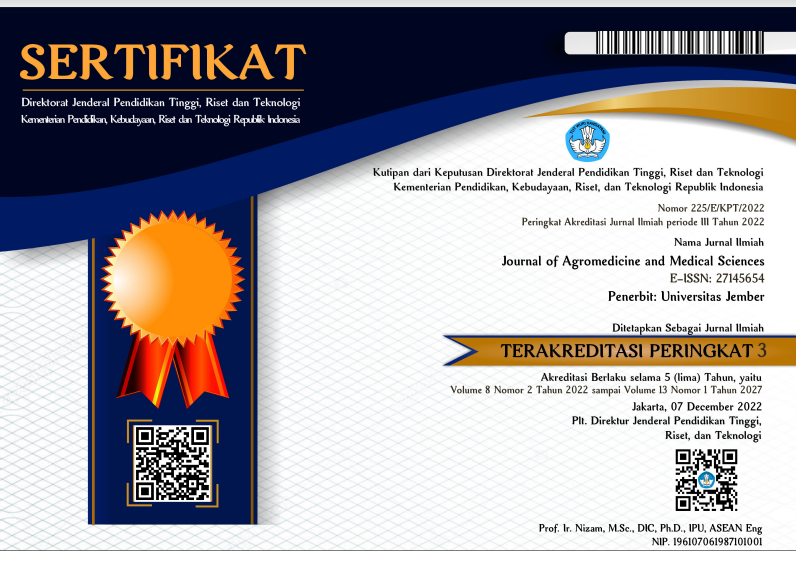The Effect of Azadirachta indica leaves extract on Transforming Growth Factor-β and Tumor Necrosis Factor-α in a Plasmodium berghei infected Mice model
DOI:
https://doi.org/10.19184/ams.v7i1.21867Abstract
Malaria is a health problem for the world's population and is predominantly located in tropical and subtropical areas. The three countries with the most malaria cases are India (58%), followed by Indonesia (20%), then Myanmar (16%). This study aims to determine the effect of neem leaf extract on increasing TGF-β expression and decreasing TNF-α expression in mice infected with Plasmodium berghei. In this study there were four groups, namely Treatment 1 (in Plasmodium berghei infection without therapy). Treatment 2 (in Plasmodium berghei infection and treated with Azadirachta indica leaf extract at a dose of 0.25 mg / g BW). Treatment 3 = (in Plasmodium berghei infection and therapy with Azadirachta indica leaves at a dose of 0.5 mg / g BW). Treatment 4 = (in Plasmodium berghei infection and treated with Azadirachta indica leaves at a dose of 1 mg / g BW). TGF-β examination by elisa method and TNF-α by immunohistochemistry. Data analysis using SEM (Structural Equation Modeling) The results of treatment 1 and 2 showed a decrease in plasma TGF-β expression (t = 1.13; tcount = 1.93; ≥ttabel = 1.96) and spleen (tcount = 1.53; tcount = 1.45; ≥ttabel = 1.96) but there was an increase in spleen TNF-α expression (tcount = 1.77; tcount = 1.00; ≥ttabel = 1.96). Groups 3 and 4 showed an increase in plasma TGF-β expression (tcount = 5.13; tcount = 2.42; ≥ttable = 1.96) and spleen (tcount = 2.00; tcount = 1.97; ≥ttabel = 1.96) but there was a decrease in spleen TNF-α expression (tcount = 2.03; tcount = 2.11; ≥ttabel = 1.96). Conclusion: Azadirachta indica leaf therapy can increase TGF-β expression and decrease TNF-α expression in the spleen.
Keywords: Azadirachta indica ethanol extract, transforming growth factor- β, tumor necrosis factor-α























